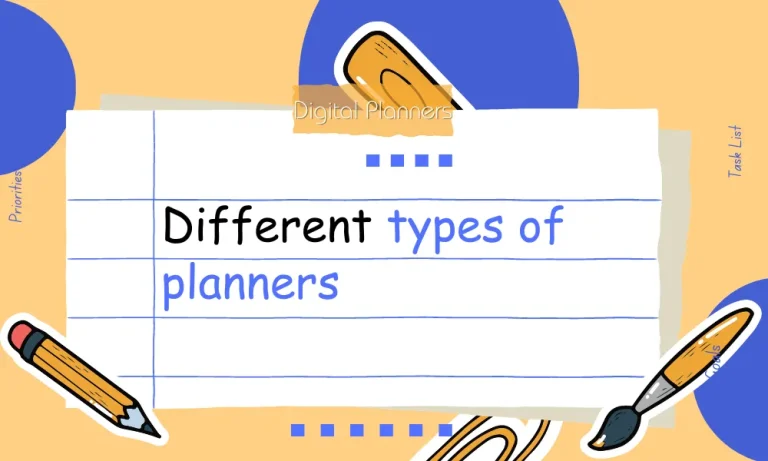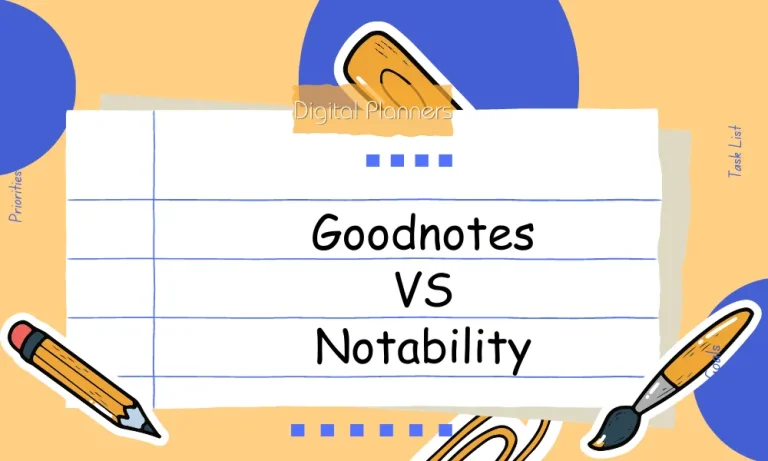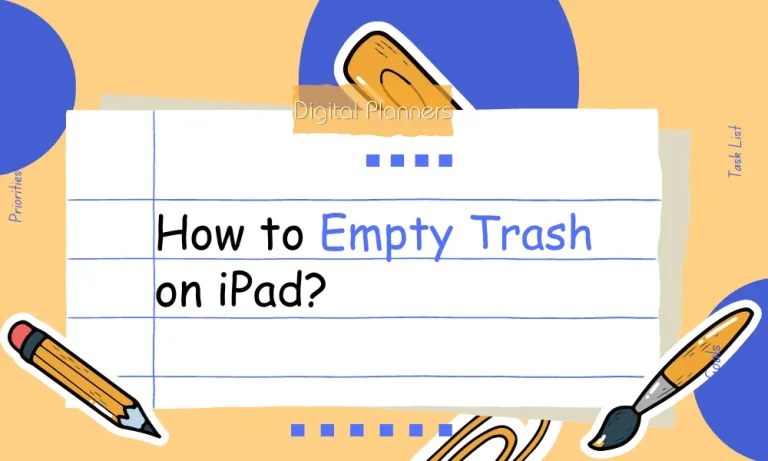In a world filled with endless distractions and competing demands, managing our time effectively has become crucial. But is time management alone enough to achieve peak productivity? Enter attention management, a game-changing approach that focuses not just on the clock, but on how we allocate our mental energy. Let’s explore the key differences between these two strategies and discover how attention management can help us reclaim our focus and skyrocket our productivity.
Understanding Time Management
Time management involves a range of techniques and strategies that can help us stay organized and focused. One effective technique is creating to-do lists or using productivity apps to track our tasks.
Breaking down larger projects into smaller, manageable steps can also enhance productivity.
Setting Goals and Prioritizing Tasks
Setting clear goals is crucial when it comes to time management. By identifying what we want to achieve, we can prioritize tasks accordingly.
It is essential to distinguish between urgent and important tasks and allocate our time accordingly. This helps us avoid getting overwhelmed and ensures that we focus on what truly matters.
Tools and Apps for Enhancing Time Management Skills
In today’s digital age, numerous tools and apps are available to assist us in managing our time effectively. These range from simple task management apps to sophisticated project management software.
By utilizing these tools, we can streamline our workflow, delegate tasks, and track our progress, resulting in increased productivity.
The Pitfalls of Time Management
While time management is crucial for productivity, solely focusing on it can have its limitations. It’s important to be aware of the potential pitfalls that can arise when we become too fixated on managing time alone.
The Limitations of Solely Focusing on Time Management
Relying solely on time management techniques may lead to a narrow perspective on productivity. It emphasizes checking off tasks without considering the quality of work or the alignment with long-term goals. This narrow focus can result in burnout, stress, and a lack of fulfillment.
Common Challenges and Obstacles Faced in Time Management
Time management faces various challenges, such as unexpected interruptions, multitasking, and unrealistic expectations.
Procrastination and poor planning can also hinder effective time management. These challenges often lead to a sense of being overwhelmed and a constant feeling of being behind schedule.
Attention Management
Attention management refers to the practice of intentionally directing and allocating our mental energy to specific tasks or activities. It involves being mindful of how we invest our attention and making conscious choices about what deserves our focus.
Unlike time management, which emphasizes the quantity of time spent, attention management prioritizes the quality of attention given.
Key Differences Between Time Management and Attention Management
While time management revolves around scheduling and organizing tasks within a set timeframe, attention management focuses on optimizing mental energy.
Time management aims to maximize efficiency, while attention management seeks to optimize effectiveness.
By shifting our focus from time to attention, we can harness the power of deep work and achieve greater productivity.
How Attention Management Improves Productivity and Focus
Attention management helps us combat distractions and improve our ability to concentrate. By setting boundaries, eliminating unnecessary interruptions, and practicing mindfulness, we can cultivate a state of flow where our attention is fully engaged. This leads to higher-quality work, increased creativity, and a sense of fulfillment in our endeavors.
Techniques for Attention Management
In our fast-paced world filled with distractions, mastering attention management techniques is essential for maintaining focus and productivity.
By implementing strategies that enhance our attention span and minimize interruptions, we can create an optimal environment for deep work and peak performance.
Mindfulness and Meditation Practices for Enhancing Attention Span
Practicing mindfulness and meditation can significantly improve our ability to sustain attention. By training our minds to be present and non-judgmental, we can cultivate a heightened awareness of our thoughts and redirect our focus to the task at hand.
Regular mindfulness exercises help improve concentration and reduce the impact of external distractions.
Strategies for Minimizing Distractions and Maintaining Focus
To minimize distractions, it’s crucial to identify and eliminate potential interruptions. This can involve turning off notifications on electronic devices, creating dedicated workspaces, and establishing set times for checking emails or social media.
Additionally, breaking tasks into smaller, manageable chunks and utilizing time-blocking techniques can help maintain focus and prevent overwhelm.
The Role of Environment and Workspace in Attention Management
Our environment plays a significant role in attention management. A clean, organized workspace with minimal clutter promotes a clear mind and reduces visual distractions. Consider optimizing lighting, temperature, and ergonomics to create a comfortable and conducive environment for sustained focus.
Additionally, incorporating elements like plants or calming colors can enhance productivity and overall well-being.
The Benefits of a Balanced Approach
Finding a balance between time management and attention management can have profound benefits on our productivity, well-being, and overall success.
By understanding the synergy between these two approaches and integrating them harmoniously, we can unlock our full potential and lead more fulfilling lives.
Time management and attention management are not mutually exclusive but rather complementary practices. Time management helps us allocate our time effectively, ensuring that we prioritize important tasks and meet deadlines.
Attention management, on the other hand, focuses on optimizing our mental energy to stay focused and engaged in our work. By combining these approaches, we can achieve a harmonious balance that maximizes both efficiency and effectiveness.
A balanced approach to time and attention management can lead to significant improvements in productivity and stress reduction.
By managing our time wisely and allocating our attention intentionally, we can accomplish more in less time and with greater focus. This not only boosts our productivity but also reduces stress levels by eliminating the constant feeling of being overwhelmed. A balanced approach allows us to work smarter, not harder.
Practical Tips for Time and Attention Management
Integrating time and attention management into our daily lives can be a transformative practice that enhances our productivity and focus. By implementing practical tips and adopting specific routines and habits, we can optimize our time and attention to achieve our goals more effectively.
Actionable Steps for Integrating Time and Attention Management into Daily Life
To integrate time and attention management into our daily lives, it’s important to start with small, actionable steps. This can include creating a to-do list or using a planner to prioritize tasks and allocate time for each.
Breaking tasks into smaller, manageable chunks and setting specific deadlines can help us stay focused and motivated. Additionally, practicing mindfulness techniques, such as deep breathing or taking short breaks, can replenish our attention and prevent burnout.
Suggested Routines and Habits for Optimizing Productivity and Focus
Establishing routines and habits can significantly enhance productivity and focus. Designating specific times for focused work, such as the Pomodoro Technique, where you work for 25 minutes followed by a short break, can help maintain concentration and prevent distractions.
Creating a consistent morning or evening routine that includes activities like exercise, journaling, or meditation can also set the tone for a productive day ahead.
Additional Resources and Tools for Further Exploration
Numerous resources and tools are available to further explore and support time and attention management. Books like “Deep Work” by Cal Newport or “The Power of Now” by Eckhart Tolle provide valuable insights and strategies.
Digital tools such as productivity apps like Todoist or time-tracking apps like Toggl can help track tasks and manage time effectively. Additionally, online courses or workshops on time and attention management can provide in-depth guidance and practical techniques.
FAQs
What is the difference between time management and attention management?
Time management focuses on allocating and prioritizing tasks within a specific timeframe, while attention management is about optimizing mental energy and staying focused on the task at hand.
Can I effectively manage my time without managing my attention?
While time management is important, attention management is equally crucial. Without managing your attention, you may struggle to stay focused and utilize your time efficiently.
How can a balanced approach to time and attention management benefit me?
A balanced approach can lead to increased productivity and reduced stress. By managing your time wisely and allocating your attention intentionally, you can accomplish more in less time and with greater focus.
Are there any specific techniques or strategies for improving time and attention management?
Yes, several techniques can help improve time and attention management, such as creating to-do lists, breaking tasks into smaller chunks, setting specific deadlines, practicing mindfulness, and using time-tracking tools.
Can I learn and develop better time and attention management skills?
Absolutely! Time and attention management skills can be learned and developed through practice and consistent effort. By implementing practical tips, adopting new habits, and exploring resources, you can improve your ability to manage both effectively.
Conclusion
Time management and attention management are two essential components for achieving productivity and success in our lives. While time management helps us allocate our time wisely, attention management ensures that we stay focused and engaged in our tasks.
By finding a balance between the two, we can unlock our full potential and lead more fulfilling lives.



